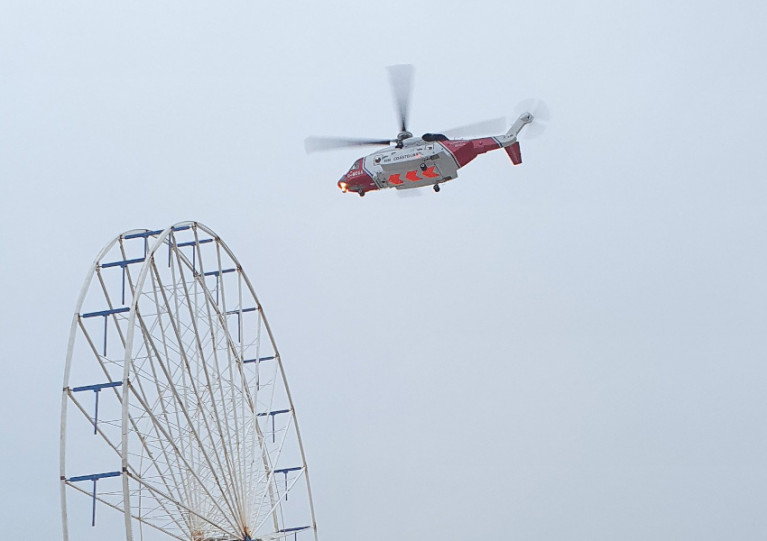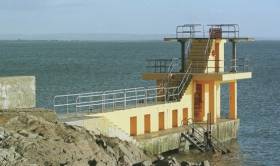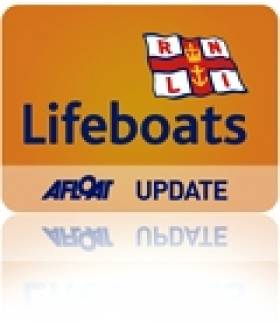Displaying items by tag: Blackpool
Angler Feared Missing In Irish Sea Walks Into Blackpool Bait Shop Unaware Of Search
An angler from Blackpool learned he was the subject of a nine-hour search and rescue operation only after being told about the incident by an employee at a bait shop in the Lancashire town, as the Blackpool Gazette reports.
It’s understood that the man gave a statement to police after his discussion with shop workers at Blackpool Angling Centre revealed he was likely the person at the centre of a major emergency operation launched two days previously, on Thursday 2 January.
The man — who had been angling at Blackpool’s South Pier when he says he got into difficulty with his fishing gear — is believed to be new to the area and “genuinely didn’t know there was a full scale search for him”, according to a spokesperson for the shop.
The Blackpool Gazette has more on the story HERE.
Talks Over Return Of Blackrock Tower Liferaft
#Galway - Irish Water Safety in engaged in talks with Galway City Council over the possibility of reinstating the liferaft at BlackrockDiving Tower.
Councillors last year rejected proposals to replace the amenity after a poor health and safety assessment in 2015, as previously reported on Afloat.ie.
The raft was originally removed from the tower in Salthill in 2014 after it was associated with incidents of falls and near drownings.
But as Galway Bay FM reports, talks have begun in the wake of local public sentiment for the liferaft, with a view to including it in delayed upgrade works on the tower.
#RNLI - On 14 July our friends across the Irish Sea at Blackpool RNLI will celebrate 150 years of lifesaving.
The station was established in 1864 – 40 years after the RNLI was founded – and has been operated by a large team of dedicated volunteers ever since.
During its 150-year history, the charity’s lifeboats in Blackpool have launched on 1,898 occasions and have rescued 625 people.
A great deal has changed for the station in that time. The first lifeboat station to be built in Blackpool cost £170 – in sharp contrast to today’s station running costs, which total £85,000 per year.
The cost of RNLI lifeboats has also changed dramatically. Samuel Fletcher of Manchester, the station’s second lifeboat, entered service in 1885 at a cost of just £398. This sum is considerably smaller than the £214,000 price tag of the current Atlantic 85 William & Eleanor.
Running costs are not the only thing that has changed in the 150 years since Blackpool RNLI was established. The number of calls for help has also changed significantly.
In the first 100 years of service Blackpool’s RNLI volunteers had an average of just two service calls per year. However, for over a decade now the station's volunteers have launched on average 64 times each year.
On some occasions callouts are straightforward and simple but on others the rescue operations are challenging, dangerous and demand extraordinary levels of seamanship, skill and bravery.
During Blackpool RNLI’s 150 years of saving lives at sea, the charity’s volunteers have been awarded six medals for gallantry, three silver and three bronze.
The most recent medals for gallantry were awarded to Keith Horrocks MBE and Phil Denham in 1988, awarded in recognition of the courage, skill and determination they displayed when both inshore lifeboats were involved in the rescue of two people in very confused seas.
Blackpool RNLI volunteer lifeboat operations manager Keith Horrocks MBE said: "Our RNLI lifeboat station in Blackpool has a very long and proud history of saving lives at sea.
"Our 150th anniversary is a significant milestone and provides a timely opportunity to remember the hundreds of men and women who have volunteered for the RNLI in Blackpool since 1864.
"Many things have changed for the charity since 1864 but the dedication and enthusiasm of our volunteers has not."


























































